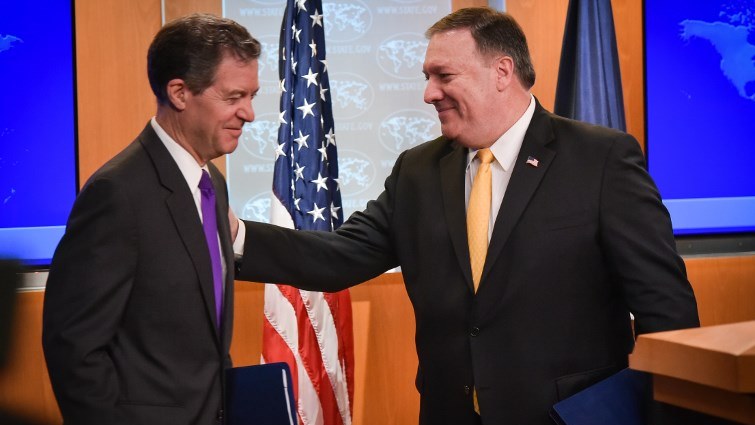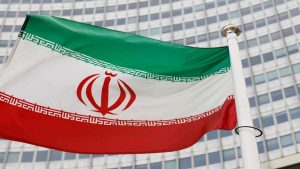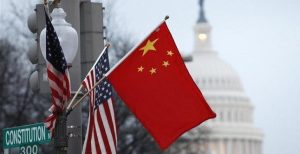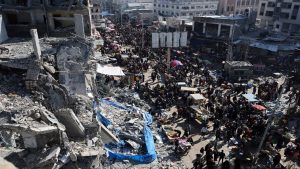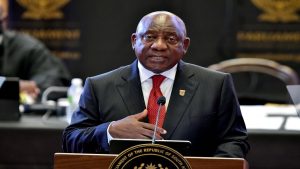Secretary of State Mike Pompeo will host a high-level international meeting on religious freedom, he announced Tuesday, putting the issue at the heart of the US human rights agenda.
The “Ministerial to Advance Religious Freedom” will be held between the chief diplomats of “like-minded governments” in Washington on July 25 and 26.
US President Donald Trump’s administration has been criticized for downplaying human rights in international relations in favor of seeking America’s economic interest.
But Christian conservatives in the cabinet, such as Pompeo and Vice President Mike Pence, have been outspoken in support of religious freedom around the world.
“The ministerial will also be my first to host as a secretary of state, and that’s very intentional,” Pompeo told reporters at the launch of the annual US religious freedom report.
“Religious freedom is indeed a universal human right that I will fight for, one that our team at the department will continue to fight for, and one that I know President Trump will continue to fight for.
“The United States will not stand by as spectators. We will get in the ring and stand in solidarity with every individual who seeks to enjoy their most fundamental of human rights.”
The report, compiled every year by US envoys around the world, covers the state of religious freedom in 200 countries and territories around the world.
In announcing its release, the State Department insisted that, while the report itself is meant to be a simple objective account, it does inform US government decisions.
In particular, it will serve as a guide when Pompeo decides whether and when to update the US list of “Countries of Particular Concern” — those that most egregiously limit freedom of conscience.
Currently those countries are China, Eritrea, Iran, Myanmar, North Korea, Saudi Arabia, Sudan, Tajikistan, Turkmenistan and Uzbekistan — with Pakistan on a watch list.
But, while the United States does protest persecution in these states, the list has not stopped Washington maintaining extremely warm and close ties with Saudi Arabia, for example.
And the US envoy for religious freedom, Ambassador Sam Brownback, was forced to defend America’s credibility to issue such a report in the light of Trump’s efforts to halt or limit US visas for Muslim travellers.
Rights watchdogs were extremely guarded in their response to the report, concerned that the administration’s evident enthusiasm for religious rights in some countries might be used to distract from broader concerns.
“It’s clear Secretary Pompeo intends to use this report as a way to elevate the importance of religious freedom, which could be positive as long as doing so does not minimize other rights concerns and truly protects victims of all religious persecution,” said Sarah Margon, Washington Director at Human Rights Watch.
And she warned against the administration allowing itself to be “manipulated by ideologues” at home or abroad.
At the launch, special envoy Brownback made particular mention of the fate of Myanmar’s Rohingya — a Muslim minority group that he said faced the “ethnic cleansing of a religious minority.”
“I don’t think you’ve seen progress taking place there in the country. If anything, the administration there is doubling now its effort,” he said of Myanmar’s authorities.
Brownback also warned that China’s Muslim Uighurs and Tibetan Buddhists are facing persecution, along with the country’s Falun Gong and Christian minority groups.
But, while acknowledging that the situation in Saudi Arabia — where non-Muslim worship is illegal — is bad, Brownback said he saw an opening for reform under Washington’s ally Crown Prince Mohammed Bin Salman.
“I’m hopeful you’re going to start seeing change coming out of that country and that you are starting to see change come out of Saudi Arabia,” he said.


